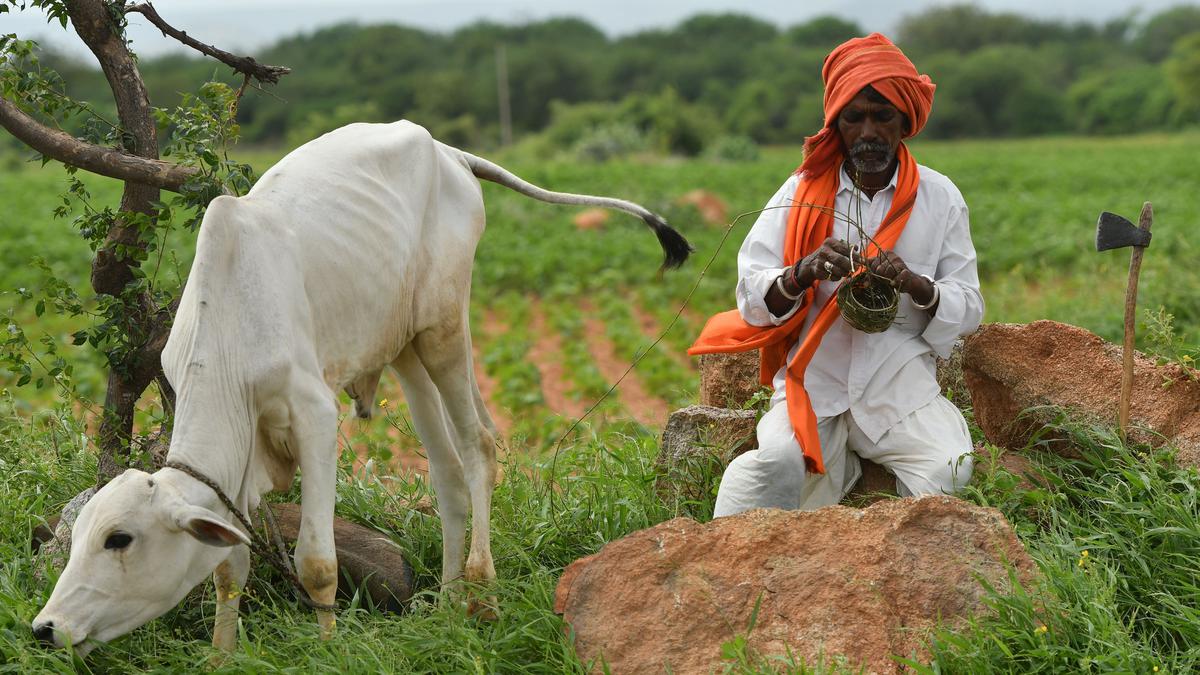
In Frames | Celebrating the rains
The Hindu
The Hindu News in Frames | September 24, 2023
The story of the nomadic community of Telangana, widely known as Banjaras and in some districts of the State, as Lambadas , is no different from other tribal communities of the country.
Amid displaced homes and constant moving, their life is an eternal search for small joys, which they find in festivities.
The Lambadas of Telangana share roots, lifestyle and culture with the people of Rajasthan. One of their socio-cultural showcases is celebrating the nine-day monsoon festival, Teej. Celebrated in the auspicious month of Sravanam of the Indian calendar, young girls and women of the community pray for a bountiful harvest and prosperity in their lives. Religious rituals aside, the Lambada tanda (habitation) comes alive with many activities as part of the festival. Song and dance are integral to the celebrations, and resplendent Banjara attire add to the festive atmosphere. The habitations reverberate with traditional Banjara songs and dance throughout the nine days, with relatives arriving from far-off places for participation.
They worship gods and goddesses by carrying wheat seedlings in twig baskets and immersing them in the local streams as a finale to the festivities akin to the Bathukamma, honoured by the rest of the women of Telangana. Hence, this ritual is termed Banjara’s Bathukamma.
The “twig arrangement” is taken up by unmarried girls on an elevated platform outside the residence of their Naik or community elder after seeking his permission. They water the seedlings three times a day for nine days, drawing water from local streams or wells. It is believed that the healthy growth of the seedlings brings good harvest and is considered auspicious. The women pray to Sevalal Maharaj, a saint, and Mera Mayadi (another name for Goddess Parvathi), seeking good alliances in marriage.
Before the immersion of Teej (baskets with wheat seedlings) on the ninth day, the women seek the blessings of community elders. After offering meat and kheer to Goddess Parvathi, the baskets are immersed in rivers or streams. Another offering is prepared with rice and jaggery and distributed after prayers. A grand banquet is organised for the community to mark the end of the festivities.













